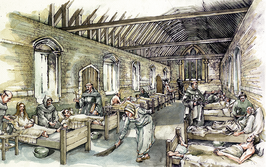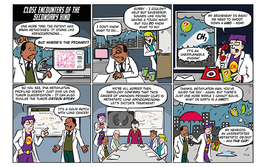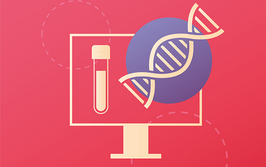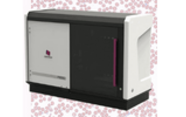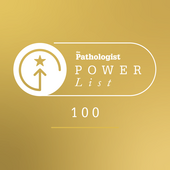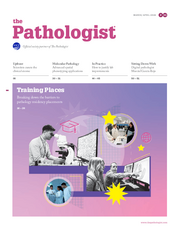Antimicrobial Arms Race
Can microbial “dark matter” give us a new weapon against drug-resistant pathogens
As the battle between humans and drug-resistant pathogens grows increasingly fraught, a team from Northeastern University in Boston (Massachusetts, USA) has used an innovative device to isolate microbial “dark matter” – bacteria that cannot typically be cultured in the laboratory. By analyzing the ability of 10,000 potential candidates to halt methicillin-resistant Staphylococcus aureus (MRSA), the team discovered 25 that showed promise (1).
To find these unculturable bacteria, the researchers used a device called an iChip, which dilutes soil samples so that individual bacterial cells can be sorted into separate chambers. After sorting, the iChip is buried again so that nutrients and growth factors from the natural soil environment can diffuse through the chambers and allow the bacteria to grow. In the lab, only about one percent of soil bacteria can be cultured, but the iChip permits the growth of about 50 percent of those bacteria.
The research team then screened 10,000 of the resulting isolates for antimicrobial activity against MRSA – and found, among others, a new species of bacterium provisionally named Eleftheria terrae. Genome sequencing revealed that the bacterium was a new genus of Aquabacteria, a group of microbes not otherwise known to produce antibiotics. From E. terrae, researchers were able to isolate and examine a novel compound, which they named teixobactin. Teixobactin shows excellent potency against Gram-positive pathogens – including drug-resistant strains. It acts by inhibiting peptidoglycan biosynthesis in the cell wall and demonstrated exceptional activity against Clostridium difficile, Bacillus anthracis and MRSA.
Even when plating at low doses, the researchers were unable to obtain teixobactin-resistant mutants of either MRSA or multi-drug-resistant Mycobacterium tuberculosis. After testing on plated bacteria, the effectiveness of the compound against MRSA and Streptococcus pneumoniae was assayed in mice, where it showed good potency and efficacy with low toxicity. If teixobactin behaves similarly in human studies – and without toxic effects – it could become our next weapon against drug-resistant pathogens.
Unfortunately, because of its action against the cell wall, Gram-negative pathogens will remain safe... for now. However, with proven systems like the iChip coming into play, we may force new dark matter into the light in our fight against Gram-negative infections.
- LL Ling et al., “A new antibiotic kills pathogens without detectable resistance”, Nature, [Epub ahead of print] (2015). PMID: 25561178.

While obtaining degrees in biology from the University of Alberta and biochemistry from Penn State College of Medicine, I worked as a freelance science and medical writer. I was able to hone my skills in research, presentation and scientific writing by assembling grants and journal articles, speaking at international conferences, and consulting on topics ranging from medical education to comic book science. As much as I’ve enjoyed designing new bacteria and plausible superheroes, though, I’m more pleased than ever to be at Texere, using my writing and editing skills to create great content for a professional audience.

